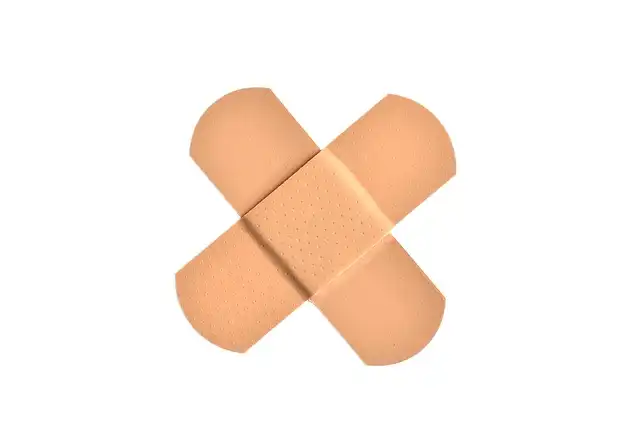Grants Fund Opioid & HIV Treatment for Incarcerated

UMass Amherst receives $17.9M in NIH grants for opioid use disorder (MOUD) & HIV treatment programs in jails, addressing healthcare access & Medicaid barriers for incarcerated individuals during opioid epidemic.
In stage among the Massachusetts JCOIN Center research, Elizabeth Evans, professor of area health and wellness education and associate chair of health and wellness promotion and policy in the UMass Amherst School of Public Health And Wellness and Health Sciences, and group worked with companions at 7 rural and metropolitan jails to evaluate the end results, execution and expenses of a pilot program made to use medicines for opioid usage condition (MOUD) during incarceration and help with continuation of MOUD therapy after release. Evans will certainly get a $1.4 million give to fund the last year of Phase 1 and a five-year, $8.2 million grant for Stage 2.
The research will certainly start by addressing a conventional barrier to health care for many incarcerated people. “Historically, when people get jailed, their access to Medicaid can get paused or put on hold,” Evans clarifies. “And Massachusetts identified that as a genuine difficulty, specifically for incarcerated people with dependency.”
Medicaid Access for Incarcerated People
Similar to the first stage of JCOIN, Massachusetts is a testing room. “If this works in Massachusetts, then other states can gain from this really ingenious program and attempt to do something comparable in their state,” Evans states.
“Jail settings offer chances for testing, avoidance and therapy of both contagious disease and also opioid and various other material use conditions,” Evans states, “making jails an essential component of our public wellness system.”
While we only make use of modified and authorized material for Azthena
responses, it might from time to time provide incorrect responses.
Please validate any kind of data given with the associated vendors or
writers. We do not supply clinical advice, if you search for
medical info you should constantly seek advice from a clinical
expert before acting upon any kind of information offered.
In the an additional brand-new NIH task, funded with a $4.7 million give, Evans and Dr. Alysse Wurcel, a physician-scientist at Boston Medical Center, will establish an HIV avoidance, therapy and screening program for individuals incarcerated in a Boston-area jail that experienced an HIV break out a few years ago.
Jail-Based Treatment Model
The research-initiated by the NIH in 2019 and referred to as JCOIN (Justice Neighborhood Overdose Advancement Network)- works as the very first evidence-based design for jail-based treatment for a prone group of people in a nation still facing a costly and fatal opioid epidemic.
News-Medical. Internet supplies this clinical information service in conformity
with these conditions and terms.
Please note that clinical information found
on this web site is designed to sustain, not to replace the partnership
in between person and physician/doctor and the clinical guidance they might provide.
Continuing MOUD Treatment Post-Release
“In the first year of our research study, we are mosting likely to consider that-does this waiver expand access to health care for incarcerated individuals and result in better end results,” claims Evans, that will work together with UMass Amherst associate Michal Horný, assistant teacher of health and wellness policy and monitoring, and Ekaterina “Kate” Pivovarova, associate professor of family members medication and community health at UMass Chan Medical School. “At the very same time, we’ll be developing an intervention that we intend to test in the prisons to sustain the continuation of MOUD once people transition back to the community-with the concept that if it is assuring it likewise can be maintained with supports from Medicaid.”
An University of Massachusetts Amherst public health and wellness researcher has received 4 grants completing $17.9 million from the National Institutes of Health And Wellness (NIH) to continue groundbreaking research study that implemented and analyzed clinical therapy programs for incarcerated people with opioid usage problem, along with develop a brand-new program for HIV prevention and treatment.
We found that the people in jail getting MOUD therapy for opioid use condition have much better results behind people that do not get that therapy. However we likewise located that when they leave jail and return to the area, numerous individuals are not proceeding with the therapy they were obtaining in jail.”
Partnership for Treatment
In a relevant project with $3.6 million in NIH financing, Pivovarova, Evans and group will work to develop a partnership between the courts and MOUD treatment service providers to far better course people with opioid use problem right into therapy instead of prison.
In 2024, Massachusetts received federal approval for an Area 1115 waiver to offer Medicaid benefits to incarcerated individuals as much as 90 days before their release, with the aim of enhancing access to health care, especially for substance usage problems, and support services for individuals transitioning back into the area. This will enable incarcerated individuals without medical insurance to get Medicaid, and those with stopped briefly protection to have Medicaid reinstated.
1 HIV treatment2 incarcerated individuals
3 Medicaid access
4 MOUD therapy
5 opioid use disorder
6 public health experts
« Gut Microbes & Methane: How Fiber Digestion VariesPeanut Consumption During Pregnancy Affects Child’s Genes »
